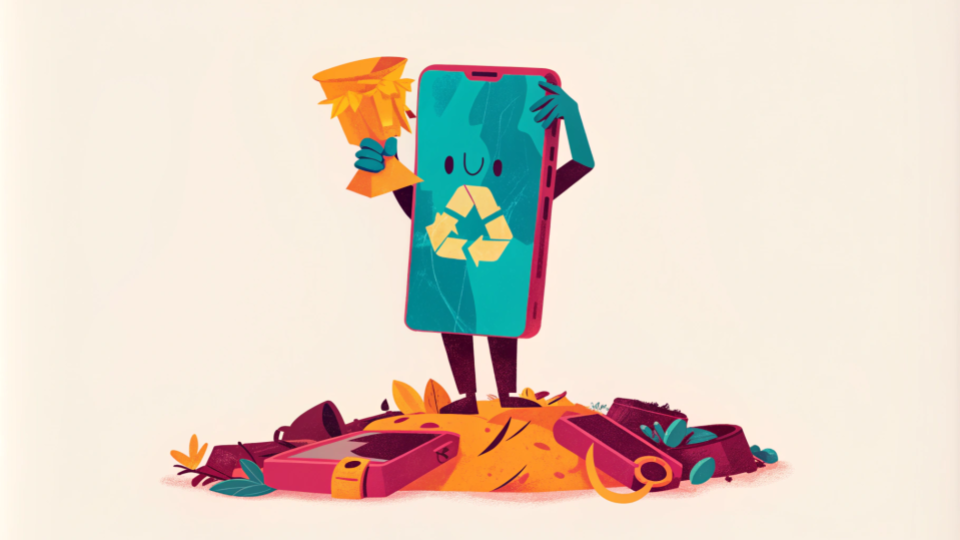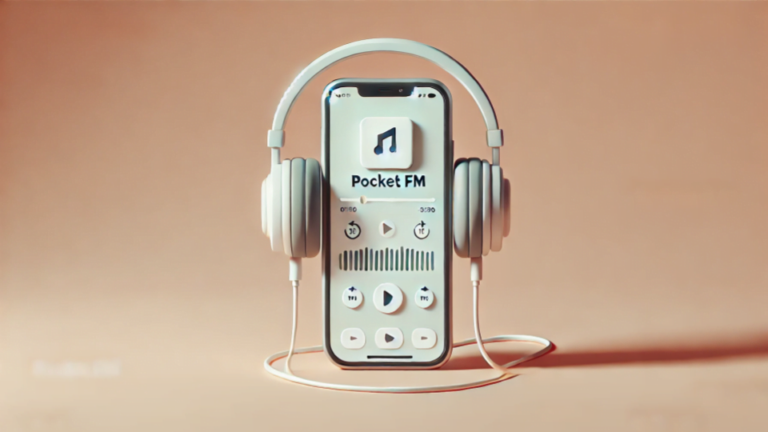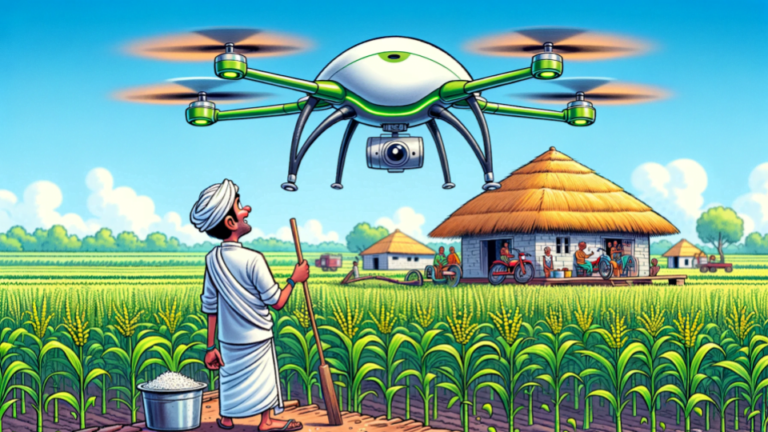Fairphone : Teaching Smartphone Giants About Modularity

Why, in an era of rapid technological innovation where AI can simulate conversation and even mimic thought (to a degree), are most phones designed to be disposable rather than repairable? This is the question Fairphone dares to ask—and answer. (Fairphone)
Fairphone, established by Bas van Abel, Tessa Wernink, and Miquel Ballester, is a Dutch company headquartered in Amsterdam. It aims to revolutionize the electronics industry by producing modular smartphones that prioritize ethical sourcing, environmental sustainability, and user repairability.
The company’s journey began as a campaign to raise awareness about conflict minerals in electronics. Recognizing the need for tangible change, the founders transitioned Fairphone into a social enterprise. Their mission is to create smartphones that are not only functional but also ethically produced, addressing issues like unfair labor practices and environmental degradation.
Fairphone’s approach includes sourcing materials from conflict-free mines, ensuring fair labor conditions in manufacturing, and designing phones with modular components. This modularity allows users to easily repair or upgrade their devices, extending the product’s lifespan and reducing electronic waste.
The Call That Started It All: Meet Fairphone’s Ethical Engineers
Bas van Abel
Bas van Abel is a prominent social entrepreneur, designer, and innovator with a career spanning over two decades. Known for his dedication to social innovation, he has continuously championed sustainable practices and transformative ideas in the economic landscape. Beyond Fairphone, Bas has extended his innovative spirit to other ventures. He co-founded De Clique, a logistical service and platform aimed at transforming organic waste into valuable resources. He is also a thought leader whoch is evident through his roles as a keynote speaker, Ashoka Fellow, and guest lecturer at Nyenrode Business University. Recognized internationally, Bas has received several accolades, including being named Social Entrepreneur of the Year by the World Economic Forum in 2018. (Bas van Abel)
Tessa Wernink
Tessa Wernink is a distinguished social entrepreneur, leadership coach, and advocate for sustainable and equitable business practices.Her work at Fairphone helped establish the company as a leader in producing sustainable smartphones. Beyond her achievements with Fairphone, Tessa is the founder of several initiatives. Through her platform, The Undercover Activist, she leads efforts to promote employee-led transformation and positive workplace activism. She also serves as a founder and host of the podcast What If We Get It Right?, where she explores stories of social entrepreneurs creating lasting economic and community impacts globally.
Tessa studied Creative Leadership at THNK School of Leadership and pursued International Development Studies at the University of Amsterdam. Her professional experience extends to her consultancy work with Disrupt Development, a post-growth change agency, where she contributes to catalyzing movements for reimagined global development practices. She has also been an independent business owner at The Whole Works, focusing on organizational design, resilient leadership, and strategic communications. (Tessa Wernink)
Miquel Ballester Salvà
Miquel Ballester Salvà is a visionary leader in sustainable product design and development, with over a decade of experience in advancing ethical and environmentally conscious initiatives. Miquel’s journey with Fairphone began with his involvement in exploring market acceptance for fair electronics during a project with the Waag Society. Over the years, he has held multiple roles within the company, including Circular Innovation Lead, Product Management Team Lead and now, Head of Product Management. (Fairphone Team)
Miquel holds a Master’s degree in Strategic Product Design with a specialization in technologies for sustainable development from Delft University of Technology. He also earned a degree in Industrial Design Engineering from Universitat Politècnica de València. Miquel’s influence extends beyond his professional roles. As a speaker and advocate for sustainable practices, he has inspired audiences by addressing critical topics related to sustainability and innovation. (Miquel Ballester Salvà)
The Founding Story
The founding story of Fairphone began as an awareness campaign in 2011 highlighting the issues of conflict minerals in electronics. The founders aimed to educate consumers about the social and environmental impacts of smartphone production. Realizing that awareness alone was insufficient, they decided to create a tangible example of an ethical smartphone. This led to the establishment of Fairphone as a social enterprise in 2013, focusing on fair labor practices, sustainable materials, and modular design to promote longevity and repairability. Their combined expertise in design, communications, and sustainability enabled Fairphone to challenge industry norms and advocate for a more ethical approach to electronics manufacturing.
The Cellular Evolution: Navigating the Signal in a Crowded Market
Just a few decades ago, wireless phones were a thing of marvel. Today, smartphones have become integral to billions worldwide. In 2021, the global smartphone market was valued at approximately USD 457.18 billion. Projections indicate growth to USD 792.51 billion by 2029, reflecting a Compound Annual Growth Rate (CAGR) of 7.3% during the forecast period. (Fortune Business Insights)
The smartphone market’s growth is driven by technological advancements, increasing internet penetration, and rising disposable incomes. The adoption of 5G technology and the integration of Artificial Intelligence (AI) in smartphones are significant factors contributing to this expansion. Despite overall growth, the market faces challenges. In early 2024, Apple experienced a nearly 10% drop in iPhone shipments, leading to Samsung reclaiming its position as the world’s largest phone maker. (The Times)
Emerging markets, particularly in Asia-Pacific, are pivotal in driving smartphone adoption. Countries like India and China have seen substantial increases in smartphone users, contributing to the market’s expansion.
Fair Game: How Fairphone is Playing by New Rules
Mision and Vision
Fairphone prioritizes ethical production, environmental sustainability, and user repairability. Their mission is to care for people and the planet by focusing on human rights, worker well-being, climate impact, and reducing electronic waste. The company envisions an economy based on fairer principles, aiming to change the relationship between people and their products. By making a phone, Fairphone opens up the supply chain and creates new relationships between people and their products. (Fairphone)
Problems They Solve
Fairphone addresses several critical issues in the electronics industry. They tackle the use of conflict minerals by sourcing materials responsibly, ensuring that their supply chain does not fund armed conflicts. The company also focuses on improving labor conditions by working closely with manufacturers to ensure fair wages and safe working environments. Additionally, Fairphone designs its products for longevity and repairability, reducing electronic waste and promoting a circular economy.
Business Model
Their business model emphasizes transparency and sustainability. Fairphone provides detailed cost breakdowns of their products, showing how purchases support their social enterprise, from developing products and social projects to manufacturing, marketing, and operations. They also engage in open collaboration with independent certification organizations, such as being B-Corp certified, joining a community of over 1,000 companies using business to address social and environmental issues.
By integrating these practices, they challenge the traditional electronics industry, demonstrating that it is possible to create high-quality, sustainable products without compromising on ethics. Their approach encourages consumers to consider the broader impact of their purchasing decisions and supports a shift towards more responsible consumption.
Parts with a Heart: The Modular Magic of Fairphone
Fairphone offers a range of products designed with fairness, sustainability, and user empowerment in mind. Their product lineup includes smartphones and accessories that emphasize modularity, repairability, and the use of responsibly sourced materials. (Products)
Fairphone 2
Launched in 2015, the Fairphone 2 was the company’s first modular smartphone, allowing users to easily replace components such as the screen, battery, and camera. This design extended the device’s lifespan and reduced electronic waste. The Fairphone 2 featured a 5-inch Full HD display, a Qualcomm Snapdragon 801 processor, 2GB of RAM, and 32GB of internal storage, expandable via microSD. It also included an 8MP rear camera and a 2MP front camera. The device ran on Android and received software support for several years, highlighting Fairphone’s commitment to longevity.
Fairphone 3 and 3+
Released in 2019, the Fairphone 3 built upon its predecessor’s modular design, featuring a 5.65-inch Full HD+ display, a Qualcomm Snapdragon 632 processor, 4GB of RAM, and 64GB of internal storage, expandable via microSD. It came with a 12MP rear camera and an 8MP front camera. In 2020, Fairphone introduced the Fairphone 3+, which offered upgraded camera modules—a 48MP rear camera and a 16MP front camera—that were also compatible with the Fairphone 3, allowing users to enhance their existing devices. Both models emphasized the use of fair and recycled materials, including Fairtrade gold and conflict-free minerals.
Fairphone 4
The Fairphone 4, launched in 2021, marked a significant advancement with 5G connectivity and a more robust design. It featured a 6.3-inch Full HD+ display, a Qualcomm Snapdragon 750G processor, options of 6GB or 8GB of RAM, and 128GB or 256GB of internal storage, expandable via microSD. The device included a dual rear camera setup with 48MP sensors and a 25MP front camera. The Fairphone 4 achieved an IP54 rating for dust and water resistance and continued the company’s focus on modularity and repairability, offering a five-year warranty and long-term software support.
Fairphone 5
Announced in August 2023, the Fairphone 5 represents the company’s most sustainable and advanced smartphone to date. It features a 6.46-inch OLED display with a 90Hz refresh rate, a Qualcomm QCM6490 processor, 8GB of RAM, and 256GB of internal storage, expandable via microSD. The device boasts a triple 50MP camera system, including wide, ultrawide, and depth sensors, along with a 50MP front camera. The Fairphone 5 offers 5G connectivity, Wi-Fi 6E, and an IP55 rating for dust and water resistance. Notably, it is constructed with over 70% fair or recycled materials and comes with a 4,200mAh user-replaceable battery that supports fast charging. Fairphone commits to providing at least five major Android OS updates and eight years of software support for this model, underscoring their dedication to longevity and sustainability.
Fairbuds XL
In addition to smartphones, Fairphone offers the Fairbuds XL, over-ear headphones designed with sustainability and user repairability in mind. These headphones feature active noise cancellation, a modular design that allows users to replace components like the ear cushions and battery, and are made from recycled and fair materials. The Fairbuds XL provide a comfortable listening experience while aligning with Fairphone’s ethical principles. (Accessories)
Sustainable Accessories
Fairphone also provides a range of accessories that adhere to their sustainability standards. These include protective cases made from recycled materials, screen protectors, and spare parts for their smartphones, enabling users to maintain and repair their devices easily. By offering these accessories, Fairphone empowers users to extend the lifespan of their products, reducing the environmental impact associated with electronic waste.
Circuit Breaker: Fairphone’s Blueprint for a Sustainable Future
Fairphone integrates technology and innovation to create smartphones that prioritize ethical production, environmental sustainability, and user empowerment. Their approach encompasses modular design, responsible material sourcing, and long-term software support.
Modular Design
Fairphone’s smartphones feature a modular architecture, allowing users to easily replace or upgrade components such as the battery, camera, and display. This design extends the device’s lifespan and reduces electronic waste. For instance, the Fairphone 4 consists of seven modules, each replaceable with a standard screwdriver, enabling straightforward repairs and customization.
Responsible Material Sourcing
Fairphone is committed to using materials that are ethically sourced and environmentally friendly. They incorporate Fairtrade gold, conflict-free tin and tungsten, and recycled plastics into their devices. By partnering with initiatives like the European Partnership for Responsible Minerals, Fairphone ensures that their supply chain supports fair labor practices and minimizes environmental impact.
Long-Term Software Support
Understanding the importance of software longevity, Fairphone provides extended support for their devices. The Fairphone 5, for example, is slated to receive at least five major Android OS updates and eight years of software support. This commitment ensures that users can keep their devices secure and functional for an extended period, further reducing the need for premature replacements.
User Empowerment and Repairability
Fairphone empowers users by providing access to spare parts and repair guides, enabling them to perform repairs independently. This approach not only extends the device’s lifespan but also fosters a sense of ownership and responsibility among users. The company’s collaboration with iFixit, a renowned repair community, underscores their dedication to making repairability a core aspect of their design philosophy.
Sustainability Initiatives
Beyond product design, Fairphone engages in various sustainability initiatives. They participate in electronic waste offset programs, ensuring that for every device sold, an equivalent amount of e-waste is responsibly recycled. Additionally, Fairphone invests in projects aimed at improving working conditions in the electronics industry, advocating for fair wages and safe labor practices.
Ringing the Bell: Fairphone’s Award-Winning Call for Change
Fairphone has achieved significant recognition and made a profound impact on the global electronics industry through its dedication to ethical and sustainable practices. Fairphone’s approach has led to remarkable results. For instance, in 2022, the company successfully avoided 999 tons of CO2 emissions, equivalent to the environmental impact of over 2,500 flights from Amsterdam to Rome.
It also facilitated the recycling of 15 tons of electronic waste, showcasing its commitment to addressing the growing e-waste problem. Fairphone has directly impacted the lives of over 83,000 individuals through better wages and fair labor conditions, including $305,000 in living wage bonuses paid to factory workers, representing nearly an extra month’s salary for over 1,900 employees. (Fairphone Impact)
The Fairphone 5, released in 2023, was highlighted as one of the most sustainable phones on the market due to its modular design, use of over 70% fair and recycled materials, and extended software support. Fairphone also aligns its efforts with global sustainability goals, committing to achieving net-zero emissions by 2045, a target set five years ahead of the Paris Agreement. In May 2024, Fairphone received the prestigious Koning Willem I Sustainable Entrepreneurship Plaque, acknowledging their dedication to sustainable business practices and ethical manufacturing. (Fairphone)
Earlier, in December 2023, Fairphone was awarded Platinum status by EcoVadis, a global standard for business sustainability ratings. This marked the third consecutive year they achieved this status, with an improved score of 88 out of 100, positioning them in the top 1% of over 114,000 companies assessed. (Fairphone)
It Takes a Network: Fairphone’s Connections for a Fairer World
Fairphone has actively engaged in partnerships and collaborations to advance its mission of creating ethical and sustainable electronics. These alliances have enhanced Fairphone’s product offerings and amplified its impact on the industry. In May 2024, Fairphone partnered with Cortado Mobile Solutions, a provider of mobile device management (MDM) solutions to offer Fairphone devices as part of its rental services, promoting the use of sustainable smartphones in enterprise environments. (Cortado)
In 2021, Fairphone expanded its cooperation with Deutsche Telekom to provide special consumer offers in Germany, such as providing a free protective phone case made from 100% recycled material with every Fairphone 3+ purchased. This initiative aimed to raise awareness about sustainability in the electronics industry. (Deutsche Telekom)
In 2019, Fairphone announced a strategic partnership with Vodafone to offer the Fairphone 3 to Vodafone customers in several European markets, including the UK, Germany, Italy, Spain, and Ireland. (Vodafone)
In 2014, Fairphone partnered with The Phone Co-op, a UK-based telecommunications provider, to distribute the Fairphone 1 in the UK. This collaboration marked Fairphone’s entry into the UK market and aligned with The Phone Co-op’s commitment to ethical business practices. (Wikipedia)
A Fair Share: The Finances Fueling Fairphone’s Mission
The company has raised a total of $69 million over six funding rounds, supported by thirteen investors. Fairphone’s first substantial funding milestone came in September 2015, when it won a $178,000 grant from the European Union. (Tracxn)
Series A
Earlier in August 2018, Fairphone raised $2.8 million in another Series A round, facilitated by OnePlanetCrowd, emphasizing the community-driven support for the company. This round followed a $7.8 million Series A round in September 2017, where institutional investor Pymwymic and corporate partner DOEN Foundation contributed significantly.
Series A and Debt Financing
In December 2018, Fairphone secured $14.8 million through conventional debt financing. Corporate backers like ABN AMRO and the Dutch Good Growth Fund participated, providing essential resources for Fairphone to strengthen its financial stability and operational capacity. Additionally, during the same period, the company completed a Series A round of $5.1 million, backed by institutional investors Quadia and Pymwymic, alongside corporate contributors such as PDENH and DOEN Foundation. Facilitators like Drake Star and NautaDutilh supported this round.
Series B
The most recent funding round was a Series B in January 2023, where Fairphone raised $53.3 million. This significant round was led by institutional investors like Invest-NL and Quadia, with additional contributions from corporate entities such as DALHAP Investments, DOEN Foundation, PDENH, and ABN AMRO. The round was facilitated by INGEN HOUSZ.
Revenue
In terms of revenue, Fairphone has demonstrated consistent growth. In 2021, the company generated €36,961,604 in revenue, a slight increase from €35,930,371 in 2020. (Fairphone) In 2022, Fairphone achieved a record high by selling 115,681 devices, compared to 88,000 in 2021. This milestone contributed to a revenue of €58,847,733 in 2022, marking a significant increase from the previous year. (Fairphone)
Hanging Up on Waste: Why Fairphone’s Journey Inspires Us All
Fairphone is redefining the electronics industry by proving that smartphones can be ethical, sustainable, and repairable. The company focuses on creating devices that prioritize people and the planet, challenging industry norms that often overlook environmental and social impacts. From using Fairtrade materials and offering modular designs to ensuring fair labor practices, Fairphone exemplifies how technology can be a force for good. Their innovative approach demonstrates that it is possible to align profitability with sustainability and fairness, setting a benchmark for responsible electronics manufacturing.
Fairphone’s story is more than just about building smartphones. It is a testament to the power of an idea driven by purpose and determination. Their journey from an awareness campaign to a globally recognized social enterprise proves that businesses can influence change in even the most complex industries. They have inspired consumers to think differently about their choices and encouraged companies to adopt more ethical practices.
If a small team from Amsterdam can disrupt an entire industry, what’s stopping you? Whether your passion is technology, sustainability, or social entrepreneurship, your ideas can make a difference. As you reflect on Fairphone’s journey, take a moment to explore other inspiring stories on Venture Kites. We cover a variety of companies and ideas that are reshaping industries and sparking innovation.
At a Glance with DORK Company

Dive In with Venture Kites
Lessons From Fairphone
Make Repairability a Selling Point
The Lesson & Why it Matters: In a world of planned obsolescence, offering repairable products creates lasting customer relationships and reduces waste.
Implementation; Design your products with replaceable components and provide repair kits or guides. Highlight these features in your marketing.
How Fairphone Implements It: Fairphone’s modular design empowers users to repair their phones easily, which has become a defining feature of the brand.
Create a Brand That Reflects Values
The Lesson & Why it Matters: Your brand should authentically represent your mission and values. A strong, value-driven brand attracts loyal customers.
Implementation: Ensure that your branding, messaging, and actions consistently align with your mission. Engage with your audience authentically.
How Fairphone Implements It: Fairphone’s branding emphasizes transparency, sustainability, and fairness, resonating with conscious consumers who share these values.
Use Profit for Purpose
The Lesson & Why it Matters: Reinvesting profits into your mission reinforces your commitment to making a difference and enhances your impact.
Implementation: Allocate profits to research, innovation, or community programs aligned with your goals. Communicate how funds are used to stakeholders.
How Fairphone Implements It: Fairphone reinvests its earnings into improving supply chains, supporting sustainable development projects, and extending product lifespans.
Turn Challenges into Opportunities
The Lesson & Why it Matters: Every obstacle is an opportunity to innovate and stand out. Facing challenges head-on strengthens your brand and earns consumer trust.
Implementation: Address industry challenges directly by creating unique solutions. Be transparent about your journey and the hurdles you overcome.
How Fairphone Implements It: Fairphone transformed challenges like conflict mineral sourcing and poor labor conditions into opportunities to set new industry standards.
Start as a Movement
The Lesson & Why it Matters: You don’t need to start as a traditional business. Beginning as a movement can help build awareness and momentum before launching a product.
Implementation: Focus on raising awareness about an issue you’re passionate about. Use storytelling and education to connect with people who share your vision.
How Fairphone Implements It: Fairphone began as an awareness campaign to highlight conflict minerals in electronics. The campaign’s success led to the establishment of the company in 2013.
Youtube Shorts
Author Details
Creative Head – Mrs. Shemi K Kandoth
Content By Dork Company
Art By Dork Company
Instagram Feed
X (Twitter) Feed
🚀 @Fairphone is transforming the smartphone industry with sustainable, modular devices! 🌍
— Venture Kites (@VentureKites) December 2, 2024
💡 Let’s explore how they’re redefining tech by prioritizing ethics, repairability, and the environment. 👇👇#Sustainability #ModularSmartphones #Fairphone












